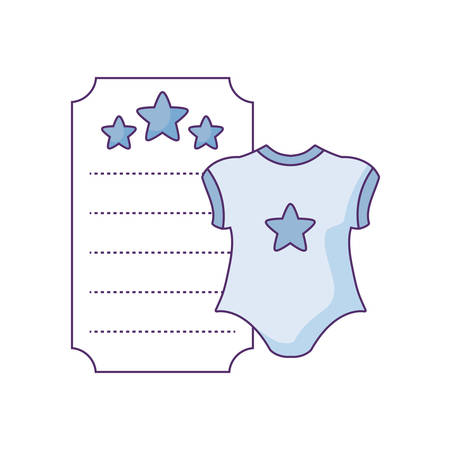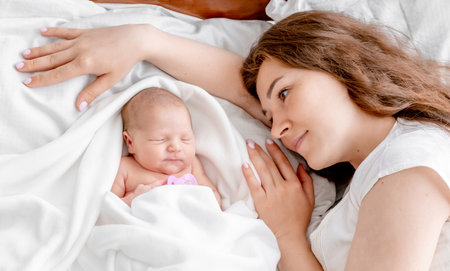Recognizing Baby’s First Cold
It’s a moment every new parent dreads: your newborn has their first cold. While it’s completely normal for babies to catch colds—especially during their first year—it can still be stressful to see your little one uncomfortable. Recognizing the symptoms early is key to providing the right care and peace of mind.
Common Cold Symptoms in Newborns
Typical signs that your baby may have caught a cold include a runny or stuffy nose, sneezing, mild cough, watery eyes, and sometimes a low-grade fever (usually under 100.4°F). You might also notice your baby is fussier than usual, has trouble sleeping, or seems less interested in feeding. These are all common responses as their tiny bodies fight off the virus.
When Is It More Than Just a Cold?
While most colds are mild, it’s important to watch for signs that could signal something more serious. Call your pediatrician if your newborn (especially under 2 months old) has a fever over 100.4°F, is having trouble breathing, isn’t eating well, seems unusually lethargic, or if you notice any blueish tint around their lips or face. Trust your instincts—if something feels off, it’s always better to check with your healthcare provider.
Key Takeaway
Understanding the difference between a simple cold and something more serious can help you act quickly if needed. Most newborn colds are manageable at home, but knowing the warning signs will help keep your baby safe and give you confidence as you navigate these early parenting challenges.
2. When to Call the Pediatrician
Knowing when to call your pediatrician is an essential part of caring for your newborn during their first cold. While most colds in babies are mild and can be managed at home, certain symptoms and situations require immediate professional attention. Recognizing these red flags will help you act quickly to ensure your baby’s safety.
Red Flags: Signs Your Baby Needs Medical Attention
| Symptom | Description | What to Do |
|---|---|---|
| Fever (100.4°F or higher) | Any fever in a baby under 3 months old is considered serious. | Call your pediatrician immediately. |
| Trouble Breathing | Rapid breathing, grunting, nostril flaring, or chest retractions. | Seek emergency care right away. |
| Poor Feeding or Vomiting | Refusing to eat or keep fluids down. | Contact your doctor for advice. |
| Lethargy or Unresponsiveness | Difficult to wake up, unusually sleepy, or limp. | Call 911 or go to the ER. |
| Persistent Cough or Wheezing | Cough that interferes with breathing or sleep. | Discuss with your pediatrician promptly. |
| Decreased Wet Diapers | Less than 4-6 wet diapers in 24 hours. | This could be a sign of dehydration—call your doctor. |
Preparing for Your Doctor’s Visit
If your baby needs to see the pediatrician, being prepared can make the visit smoother and more productive. Here are some tips:
- Track Symptoms: Write down when symptoms started, how they’ve changed, and any new developments such as fever or changes in feeding habits.
- Bring Essentials: Pack extra diapers, wipes, a change of clothes for both you and baby, and any medications your baby has taken (with dosage details).
- Be Ready to Answer Questions: The doctor may ask about sleeping patterns, number of wet/dirty diapers, feeding frequency, and exposure to sick contacts.
- Mention Medical History: Share any relevant family health history or previous illnesses with the doctor.
Your Baby’s Well-being Comes First
No question is too small when it comes to your newborn’s health. Trust your instincts—if something feels off, don’t hesitate to reach out to your healthcare provider. Early action can make all the difference in keeping your baby safe and comfortable during their first cold.

3. Keeping Baby Comfortable at Home
When your newborn catches their first cold, creating a soothing environment at home is key to helping them feel better. Here are some practical tips every parent can use:
Safe Sleeping Positions
Always place your baby on their back to sleep, even when they’re sick. This is the safest position and helps reduce the risk of Sudden Infant Death Syndrome (SIDS). If your little one seems congested, slightly elevating the head of the crib mattress by placing a rolled towel underneath (never use pillows directly with infants) can help with breathing. Be sure to keep the sleeping area free from loose blankets, toys, or pillows.
Using a Humidifier
A cool-mist humidifier in your baby’s room adds moisture to the air, which can ease stuffiness and dry nasal passages. Make sure to clean the humidifier daily to prevent mold and bacteria growth. Avoid using warm-mist humidifiers, as they can pose burn risks.
Gentle Nose Cleaning
Babies can’t blow their noses, so it’s important to help clear out mucus gently. Use a bulb syringe or nasal aspirator along with saline drops—just a couple drops in each nostril loosen mucus before suctioning it out. Try not to overdo this process; once or twice per day is usually enough unless your pediatrician advises otherwise.
Other Comfort Measures
Keep your baby hydrated by offering breast milk or formula frequently, even if feedings are smaller than usual. Dress your newborn in light layers and monitor the room temperature (between 68–72°F is ideal). Give lots of cuddles and comfort—your presence is soothing during this uncomfortable time.
When to Call the Doctor
If you notice trouble breathing, a high fever (100.4°F or above for babies under 2 months), poor feeding, or if your instincts tell you something isn’t right, don’t hesitate to reach out to your pediatrician. Your careful attention makes all the difference in helping your little one recover safely.
4. Feeding and Hydration
When your newborn comes down with their first cold, feeding and hydration become especially important. Babies can lose fluids more quickly when theyre sick, and congestion may make feeding a bit trickier. Here’s how to ensure your little one stays nourished and hydrated during this time.
Advice on Feeding a Sick Baby
If you’re breastfeeding, continue to offer breast milk frequently. Breast milk is not only hydrating but also packed with antibodies that help fight infection. For formula-fed babies, keep up with regular feedings, but be patient if your baby takes less than usual—small, frequent feedings are often easier for sick infants. If your baby is old enough for solids (typically 6 months or older), stick with familiar, gentle foods and don’t introduce anything new until they feel better.
Recognizing Signs of Dehydration
It’s crucial to watch for signs that your baby may not be getting enough fluids. Here’s a quick guide:
| Signs of Dehydration | What to Look For |
|---|---|
| Fewer Wet Diapers | Less than 6 wet diapers in 24 hours |
| Dry Mouth or Lips | Lips look cracked; mouth feels sticky |
| No Tears When Crying | Crying without tears present |
| Lethargy or Irritability | More sleepy or fussy than usual |
| Sunken Soft Spot (Fontanelle) | The soft spot on baby’s head appears sunken |
If you notice any of these signs, call your pediatrician right away. Dehydration can happen fast in young babies and needs prompt attention.
Meeting Nutrient Needs During Illness
Your babys appetite may decrease during a cold, which is normal. Focus on fluid intake first—breast milk or formula should be the priority. Don’t force-feed; instead, offer smaller amounts more frequently. If you’re concerned about nutrient intake or if your baby refuses all feeds for more than a few hours, reach out to your healthcare provider for guidance.
5. Cleanliness and Preventing the Spread
When your newborn catches their first cold, maintaining a clean environment becomes essential to protect both your baby and the rest of your family. Practicing simple hygiene habits at home can greatly reduce the chances of germs spreading.
Handwashing is Key
Encourage everyone in the household—and any visitors—to wash their hands thoroughly with soap and water before touching the baby or any of their belongings. Alcohol-based hand sanitizers are a good alternative when soap isn’t available, but washing is always best when hands are visibly dirty.
Keep Surfaces Clean
Regularly disinfect surfaces that are frequently touched, such as doorknobs, countertops, remote controls, and especially changing tables and crib rails. Use baby-safe cleaning products whenever possible to avoid harsh chemicals near your little one.
Avoid Sharing Personal Items
Make sure not to share items like pacifiers, bottles, towels, or blankets among family members. Each child should have their own set of essentials to limit the spread of germs.
Limit Visitors When Possible
If your newborn is sick or there’s illness going around in the community, consider limiting visitors for a while. Politely ask friends and relatives who feel unwell to postpone their visit until they’re fully recovered.
Teach Healthy Habits Early
Even though your baby is too young to understand now, modeling good hygiene—like covering coughs and sneezes with a tissue or elbow—will help set healthy examples for when they get older. These small steps can make a big difference in keeping your home safe and comfortable during your baby’s first cold.
6. Caring for Yourself, Too
When your newborn catches their first cold, it’s natural to focus all your energy on comforting and caring for them. But remember, your well-being matters just as much—especially during these stressful times. Parenting a sick baby can be physically and emotionally draining, so don’t forget to take care of yourself along the way.
Rest When You Can
Sleep may feel impossible with a fussy or congested baby, but even short naps or moments of downtime can make a big difference. Try to rest whenever your baby sleeps. If you’re able, share nighttime duties with your partner or another trusted adult so you can both recharge.
Seek Support
Don’t hesitate to ask for help from family, friends, or neighbors. Even small gestures—like someone bringing over a meal, picking up groceries, or watching your baby while you shower—can relieve some of the pressure. Remember, leaning on others is a sign of strength, not weakness.
Take Care of Your Mental Health
It’s completely normal to feel worried or overwhelmed when your newborn is sick. Give yourself permission to acknowledge those feelings. Reach out to other parents who have been through similar experiences, or talk with your healthcare provider if you’re feeling especially stressed. Practicing self-compassion and recognizing your own needs will help you stay resilient for your baby.
You Matter Too
Your health and peace of mind are essential—not only for you but also for your little one’s recovery. By caring for yourself during your baby’s first cold, you’ll be better equipped to provide the comfort and support they need. Remember: You’re doing an incredible job navigating this new chapter in parenthood.


